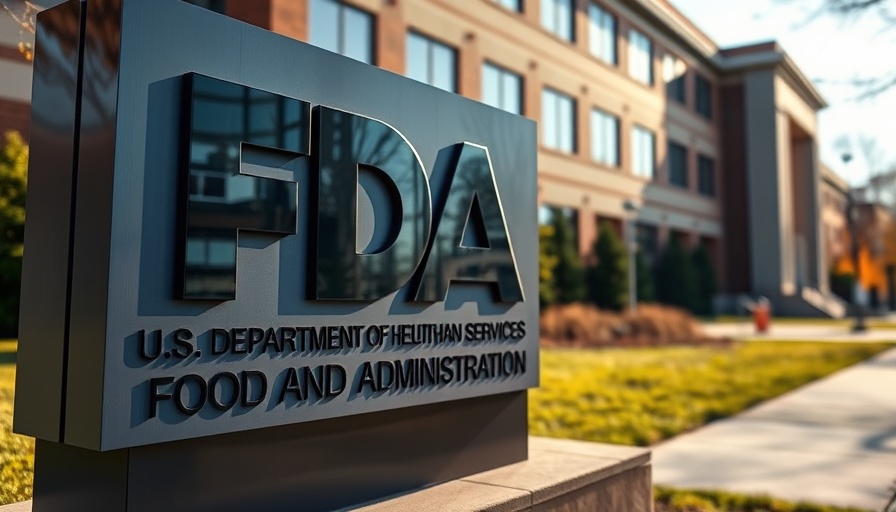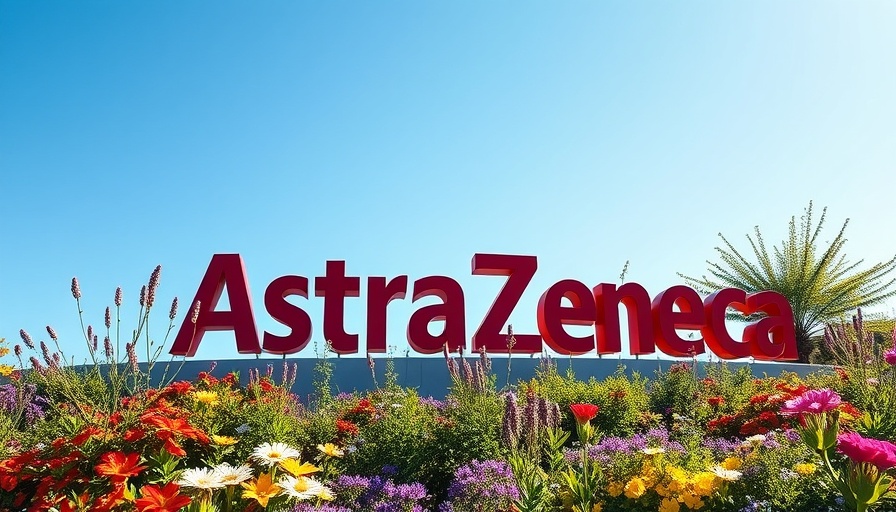
Revisiting NurOwn: The Heart of the ALS Community’s Struggle
The ALS community made headlines on July 8, 2025, when advocates petitioned the FDA to reconsider Brainstorm Cell Therapeutics' innovative treatment, NurOwn. With recent survival data highlighting its potential benefits for patients battling amyotrophic lateral sclerosis (ALS), the call for action symbolizes a larger narrative—one filled with hope, urgency, and the pivotal role of pharmaceutical research in addressing terminal diseases.
The Power of Patient Advocacy
Patient advocacy groups play a crucial role in steering the direction of research and drug approvals. The appeal to the FDA reflects a united front from families, clinicians, and ALS patients advocating for access to potentially life-saving therapies. Their voices underscore the emotional weight behind biotech innovations and highlight the importance of responsiveness in pharmaceutical regulatory processes.
What Recent Data Reveals
Newly available survival data suggests that NurOwn may extend life and improve quality of life for ALS patients. The pressure is mounting for the FDA to consider these findings seriously, as families await promising breakthroughs in a marketplace that often favors delay over accessibility. Real-world evidence is essential in transforming clinical advancements into tangible life-saving treatments.
Commercial Implications for the Biotech Industry
The push for the reconsideration of NurOwn extends beyond patient needs; it also highlights the commercial implications for the biotech industry. Successful approval and subsequent rollout of innovative treatments often set a precedent that influences investor confidence, future drug pipeline developments, and market access strategies. Consequently, the outcome of this petition could reshape the dynamics of future biotech endeavors, impacting everything from funding to drug launch announcements.
Potential Risks and Challenges
Despite the optimism surrounding NurOwn, risks remain inherent in the path to FDA approval. Historical precedents show that even promising data can be met with skepticism from regulatory bodies, particularly in diseases that have seen limited treatment options. Pharmaceutical companies face the dual challenge of navigating stringent regulations while maintaining transparent communication with both healthcare providers and patients.
Future Predictions and Opportunity Trends in ALS Treatments
The ALS landscape is rapidly evolving as new technologies and methodologies come to light, paving avenues for enhanced treatment efficacy. If the FDA approves NurOwn based on the latest data, we can expect a surge in similar treatments, as other companies will likely capitalize on the momentum it creates. This trend indicates a shift in how the pharmaceutical industry addresses rare and complex diseases, fostering innovation in drug development and commercialization strategies.
Conclusion: A Call for Action
The urgency surrounding the ALS community's petition to the FDA is not merely about one treatment; it symbolizes a larger call for innovation, compassion, and patient-centered approaches in drug development. If you are part of the pharmaceutical or biotech industry, it's imperative to stay engaged with ongoing developments, as they could redefine success metrics not just for ALS, but for countless other diseases. To ensure you remain informed, leverage available resources on patient engagement strategies, clinical trial updates, and the evolving drug landscape.
 Add Row
Add Row  Add
Add 




 Add Row
Add Row  Add
Add 

Write A Comment